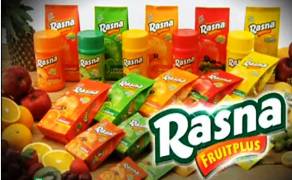 | « Back to article | Print this article |
 It had been giving tough competition to Kraft Foods’Tang in the powdered drink segment with its Rs 1 and Rs 2 sachets.
It had been giving tough competition to Kraft Foods’Tang in the powdered drink segment with its Rs 1 and Rs 2 sachets.
And now, Rasna is set to play a similar pricing game with Pepsico’s Tropicana in the fruit juice category.
Having launched its first ready-to-drink fruit beverage under the brand name ‘Ju-C’ recently, the soft drink concentrate maker has now set its eyes on the fast growing ready-to-drink beverages market Rasna has priced the product at Rs 65 for one litre PET bottle as against the industry’s current pricing of Rs 75-90 for one-litre Tetrapack.
Take, for instance, the average price increase of its current products.
Rasna's average price increase annually has been a meagre four per cent.
In comparison, Piruz Khambatta, chairman and managing director of Rasna, claims, Kraft Food's Tang's average price increase has been around 22 per cent annually.
Rasna enjoys an over 80 per cent market share in the soft drink concentrate and powdered drink market in the country.
“At Rasna, we believe we will have to cater to everybody.
Rasna has to cater to the bottom of the pyramid with Rs 1, Rs 2 and Rs 5 sachets as well as large party pack products.
“We have products from bottom to the top. We are the only soft drink maker who can reach everywhere,” Khambatta says.
So, how exactly does the company manage to hold on to its attractive pricing?
To keep the prices down, Rasna has also done some backward integration where even the fruits are picked up directly by Rasna officials from the farm to reduce procurement costs.
The non-alcoholic ready-to-drink beverage segment has been growing at a compound annual growth rate of 13 per cent since 2009, and is one of the segments that have defied the slowing economic growth, according to the Indian Beverage Association, which expects the country's beverage industry to continue to grow in double digits in 2013.
It indeed is a lucrative space to be in.
According to brand experts, Rasna has till date confined itself to indoor home space consumption, where consumers would have to make a Rasna drink to have it, but with the new Ju-C, the company has entered the outdoor space as well.
“Powder has a limitation.
“It takes time in making and is suited for indoor consumption.
“Launch of a fruit beverage now shields Rasna from the seasonality of sales.
“The focus will now have to be on managing competition.
“Plus, Rasna’s core is juice and since affordability is a big plus in India, the fruit beverage should work well.
“Rasna is good at distribution but will still have to work on its supply chain to be present everywhere,” says Pinakiranjan Mishra, partner and head - retail and consumer products at Ernst & Young India.
On its part, Rasna is taking cue from it and is working on a hub-and-spoke model of supplying its products to villages through depots in a nearby town, something that has brought success for the Gujarat Co-operative Milk Marketing Federation-owned Amul